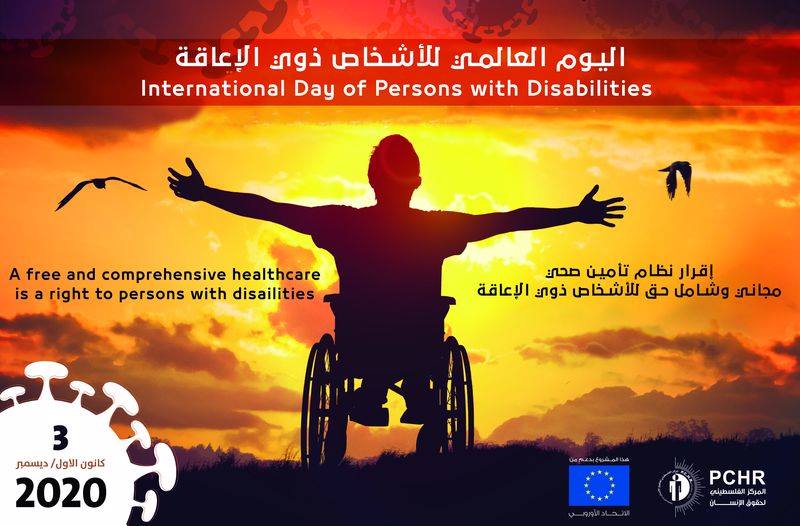
Special report on Protection Mechanisms for Persons with Disabilities
under the Covid-19 Pandemic
The coronavirus (Covid-19) pandemic has had a negative impact on all aspects of life, especially on persons with disabilities, who were the most affected group by the pandemic particularly in the Gaza Strip as the preventive measures imposed by the Gaza’s authorities to curb the outbreak of Covid-19 took its toll on them, including the closure of health, educational and service institutions, closing border crossings and denying persons with disabilities’ access to them, and depriving them of enjoying basic services recognized by the International Convention on the Rights of persons with disabilities and ensured by the Palestinian Disability Law No. 4 for 1999.
Due to these preventive measures, Gaza’s persons with disabilities, who live in difficult economic and social conditions due to the Israeli-imposed closure and the internal division in the light of the absence of law No. 4 (1999), after 21 years of its promulgation, receive poor services. Additionally, the preventive measures hindered persons with disabilities’ access to hospitals in the Gaza Strip or abroad, noting that most of them have had medical referrals and appointments for treatment abroad. As a result, many persons with disabilities were denied access to physiotherapy and occupational therapy services, and were unable to obtain assistive medical devices, undergo surgeries and receive wound dressing care services. Additionally, the suffering of persons with disabilities in quarantine centers has doubled due to poor services and inaccessible facilities, in contrast with the standards recognized by the World Health Organization (WHO).
Furthermore, Gaza’s persons with disabilities were unable to adapt with remote learning mainly because of their disability to receive lessons easily, bring their specialized teachers to their homes and reach their schools following the decision to resume at-school classes due to the compromised immune system among persons with disabilities with diseases. It should be noted that throughout the Covid-19 pandemic period, most of persons with disabilities were deprived of cash and in-kind donations as government institutions, private, and international organizations operating in the Gaza Strip downsized their services to the public.
The Palestinian Centre for Human Rights (PCHR) followed up the Covid-19 repercussions on economic and social conditions of Gaza’s persons with disabilities and received many complaints from them regarding the deterioration of their conditions during the pandemic. The issuing of this report, which coincides with the International Day of Persons with Disabilities that is celebrated annually on 3 December around the world, aims at discussing intervention mechanisms to protect persons with disabilities during the Covid-19 pandemic, measuring the extent of the competent government bodies’ commitment to meet the rights of persons with disabilities according with the Palestinian Authority’s legal obligations, especially following its accession to the International Convention on the Rights of Persons with disabilities.